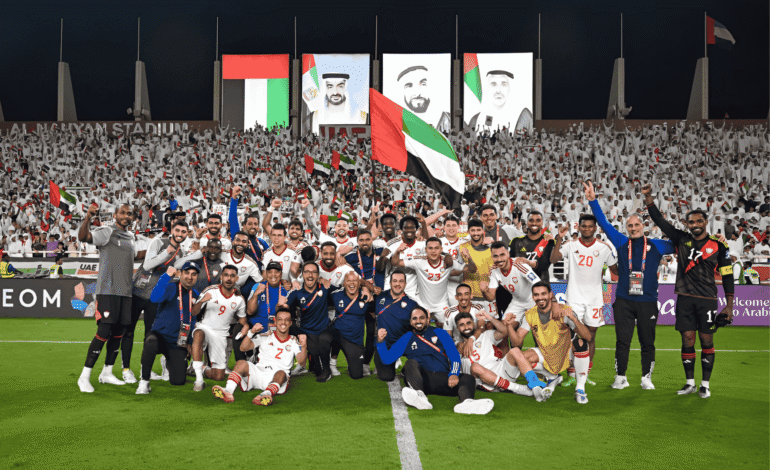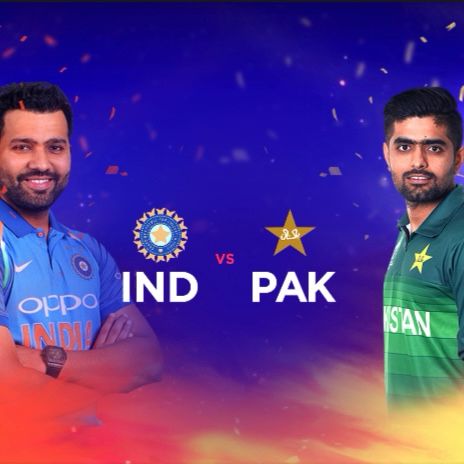UAE Push to Qualify for 2026 FIFA World Cup

As the 2026 FIFA World Cup qualifiers near a decisive phase, national teams across Asia are entering a period of heightened anticipation and determination. Among these hopefuls is the United Arab Emirates (UAE), a team that continues to nurture its ambition of reaching football’s most prestigious global stage for only the second time in its history. While the path ahead is narrow and heavily dependent on the performance of other teams, the UAE remains focused on pushing forward. Under new leadership and with spirited players, they are preparing for a defining battle that will test their resilience and unity.
Guided for the first time by Romanian coach Cosmin Olariu, the UAE national team stands at a crossroads. With just two matches left in the qualification round, they have accumulated 13 points—four fewer than Uzbekistan, who currently occupy a more favorable position in the group standings. However, despite their situation being precarious, the team is far from surrendering. The goal is not just to qualify but to inspire belief through performance and pride, regardless of the final outcome.
Cosmin Olariu Takes the Helm for the UAE
The UAE’s campaign has taken a fresh turn with Cosmin Olariu stepping in as the head coach. A tactician known for his strategic discipline and motivating presence, Olariu’s arrival has brought renewed energy to the squad. Though this will be his first official match leading the UAE, expectations around his impact are already taking shape.
His challenge is significant—he must galvanize a team that not only trails in the standings but also must rely on external outcomes to stay in the race for automatic qualification. Speaking ahead of the match, Olariu emphasized determination and the commitment to fight until the final whistle. “We know our task is difficult, but we are not giving up,” he said. “Our players are prepared to give everything to keep the dream alive.”
His leadership could mark the beginning of a new chapter in Emirati football, especially if the team can deliver a strong showing against a formidable Uzbekistan side.
Facing Uzbekistan: A Test of Grit and Strategy
The upcoming fixture against Uzbekistan at the Al Nahyan Stadium in Abu Dhabi is not just another qualifier; it is an emotional and tactical challenge. Uzbekistan, known as the White Wolves, have been one of the strongest teams in the qualifiers, suffering only one loss throughout the campaign. Their consistent form and attacking prowess make them a daunting opponent for any team, let alone one in pursuit of last-minute redemption.
UAE’s task, therefore, is to disrupt Uzbekistan’s rhythm and hold back the celebrations of a team on the brink of making history. While a victory may not guarantee UAE’s direct qualification, it will certainly delay Uzbekistan’s progress and keep mathematical possibilities alive for the Emirati squad.
The stakes are high, and the match offers a test of both footballing skill and mental fortitude. How the UAE approach this encounter—balancing defensive solidity with urgent attacking play—will likely define their standing in the group and their overall reputation in the current World Cup cycle.
Player Mindsets and Team Morale in Focus
While coaching strategies play a key role in navigating crucial games, it is ultimately the players who translate intent into action. UAE’s squad is composed of both seasoned players and emerging talents, each with their own motivation for making this campaign memorable.
There is a quiet confidence within the group—a recognition that although the challenge is tough, it is not insurmountable. Many of the players have spoken about their desire to represent their country at the World Cup stage and how each match is an opportunity to honor that ambition.
On the other side of the pitch, Uzbekistan’s team is equally focused, if not more so. Defender Rustam Ashurmatov recently commented on their drive to make history and the level of preparation that has gone into ensuring they remain competitive. “We give our all in every match,” he said. “We go to the field only to win.” His words echo the high morale and commitment that define their approach to this qualifying journey.
Australia and Saudi Arabia: Parallel Battles Unfold
While the UAE and Uzbekistan are locked in a critical clash, other teams in the region are also fighting to secure a place in the World Cup. Australia, a team with a consistent World Cup presence, faces Japan in a match that could significantly shape Group C.
Australia currently enjoys a three-point lead over Saudi Arabia and also holds a superior goal difference. However, as experienced defender Milos Degenek pointed out, nothing is guaranteed. Having qualified for the 2018 and 2022 World Cups through playoffs, Degenek is aware of how challenging and uncertain the intercontinental routes can be.
“It’s a lot easier if you qualify through the group stage directly,” he said, cautioning his younger teammates against complacency. He emphasized that qualifying now, rather than through playoffs, is essential, highlighting the emotional and physical strain that knockout fixtures bring.
Australia’s fate partially hinges on their result against Japan, who have already secured qualification and will be fielding several uncapped players. The shift in Japan’s squad composition might lead some to think Australia will have an easier path, but Degenek warned that new players bring their intensity and hunger to prove themselves worthy of World Cup selection.
Group Dynamics: How the Numbers Stack Up
As the qualifiers reach their final stages, the permutations are both complicated and intense. UAE sits four points behind Uzbekistan, meaning even a victory will not place them ahead unless other results fall in their favor. With only two matches left, the margin for error is nonexistent.
Similarly, Australia finds itself in a slightly more favorable position but must remain vigilant. A win against Japan would put them on the brink of qualification, yet they would still need to wait for the outcome of the Saudi Arabia-Bahrain match. This staggered schedule could create long hours of suspense for players, fans, and coaching staff alike.
This interplay of results underlines the unpredictable nature of World Cup qualifying in Asia, where group strength, timing of matches, and goal differences all contribute to an evolving equation.
What Qualification Means for These Teams
For countries like the UAE, reaching the World Cup is not merely a footballing milestone—it is a broader symbol of sporting growth and national achievement. Since their only appearance in the 1990 FIFA World Cup in Italy, the UAE has worked to nurture a strong domestic league and invest in grassroots programs. A successful qualification campaign would validate those efforts and catalyze future development.
For Australia, on the other hand, qualification is about maintaining a legacy. Their appearance in every World Cup since 2006 has positioned them as a consistent force in the region. Failing to qualify directly could raise questions about squad depth and strategy, despite the expanded World Cup format allowing more room for qualification.
In contrast, Uzbekistan is aiming to make history by qualifying for the first time. Their campaign has been marked by tactical efficiency and disciplined performances, making them a strong contender not just for qualification but also for making an impact at the tournament itself.
A Stage Set for Drama and Determination
As the FIFA World Cup 2026 Asian qualifiers enter a pivotal moment, the competition remains fierce, and the outcomes remain unpredictable. For the UAE, the road ahead is undoubtedly steep, yet not entirely closed. With a new coach, a committed squad, and the support of passionate fans, they aim to stay in contention and possibly extend their campaign into the next round or playoffs.
For regional rivals like Australia, Japan, Saudi Arabia, and Uzbekistan, the battles unfold in parallel, each with its own narrative and stakes. As teams maneuver through the final hurdles, every goal, substitution, and minute played could redefine their destiny.
What remains clear is that the spirit of competition is alive and well. The coming days will showcase not only the technical caliber of Asian football but also the emotional weight carried by teams, players, and nations alike, all in pursuit of a shared dream: to earn a place among the world’s footballing elite in the grand stage of the 2026 FIFA World Cup.








2 Comments
[…] the 2026 FIFA World Cup qualifiers in Asia reach their critical stages, the tension across multiple groups is palpable. One […]
[…] United Arab Emirates remain in the race to qualify for the 2026 FIFA World Cup despite a goalless draw against Uzbekistan. Though their chances for automatic qualification from […]
Comments are closed.